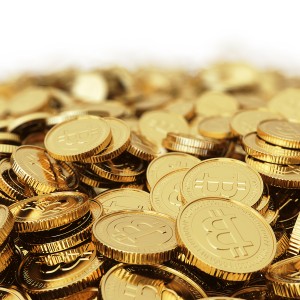The concept behind competing currencies isn’t necessarily a new one. The topic has been debated between the greatest minds in the world, but it was never settled. Today, with the growing popularity of bitcoin (BTC) and the libertarians’ dedication to precious metals, the conversation regarding competition in currencies could very well be restarted.
Friedrich Hayek, an economist from the Austrian School, promoted free choice in currency. This is what he stated in his Sept. 25, 1975 address to the Geneva Gold and Monetary Conference in Lausanne, Switzerland:
“But why should we not let people choose freely what money they want to use? By ‘people’ I mean the individuals who ought to have the right to decide whether they want to buy or sell for francs, pounds, dollars, D-marks, or ounces of gold. I have no objection to governments issuing money, but I believe their claim to a monopoly, or their power to limit the kinds of money in which contracts may be concluded within their territory, or to determine the rates at which monies can be exchanged, to be wholly harmful.”
His Chicago counterpart, economist Milton Friedman, author of the groundbreaking book “Free to Choose,” disagreed and, though he supported Hayek’s suggestions when it came to legislative revisions, he did not have confidence in the proposed system producing a consistent, stable currency with high purchasing power and high quality.
This is what he wrote in his 1984 work entitled “Currency Competition: A Skeptical View”:
“Both German marks and Swiss francs have for many years maintained their purchasing power better, and with less fluctuations, than U.S. dollars. Many residents of the U.S. hold German marks and Swiss francs, or claims denominated in those currencies, as part of their portfolio of assets. But, with perhaps rare exceptions, only those who engage in trade with Germany or Switzerland, or travel to those countries, use the currencies as a medium of circulation.”
Hayek and Friedman were pioneers during their time and each of their viewpoints should be taken seriously, observed and discussed, especially in today’s world where bitcoin has become the currency of the Internet – we reported that Friedman predicted an online currency or “e-cash.”
This week, the State Bank of Vietnam and the federal government announced that they do not recognize bitcoin as a legitimate currency or means of payment in its territories. It cited the various risks associated with bitcoin and confirmed that it would not be held responsible for bitcoin transactions.

Fiat money in a large number of countries is still in its infancy period. Over the past several decades, the world has seen collapses in multiple currencies around the world and the immense devaluation in others. Perhaps governments feel a bitcoin or litecoin, a gold or silver would unveil the vulnerabilities of government-issued, unbacked currencies.
Although it doesn’t appear that a bitcoin is going to be used as a legitimate currency moving forward – technology professionals and enthusiasts prefer its electronic payment system capabilities – central banks should consider relaxing their financial controls and monetary policies to permit the introduction and acceptance of competing currencies.
Former Texas Republican Congressman and three-time presidential candidate warned that “bitcoin could be the destroyer of the dollar.” Again, many believe it’s unlikely but this shows how toxic the greenback has transformed into over the past decade or so.
In fact, if a central bank is that confident in their issued currency then they should allow competing currencies in the marketplace. If the government fiat money is so strong then it should very well defeat its competitors, right?
The answer could be the reason why public officials are scared of anything threatening their money.
For more Bitcoin news follow PFhub on FaceBook, Twitter or bookmark this page.




